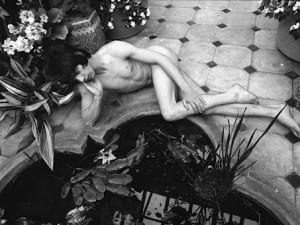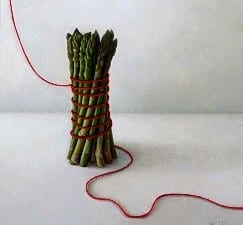Sarah Waters has brought the genre of lesbian historical fiction to the forefront of mainstream literature. Her four novels Tipping the Velvet (1998), Affinity (1999), Fingersmith (2003) and The Night Watch (2006) have received massive critical acclaim. Her first novel, Tipping the Velvet, won the 1999 Betty Trask Award, and in 2002 Fingersmith was short listed for the Orange Prize for Fiction and The Man Booker Prize. In 2003, she was named as one of Granta’s twenty Best of Young British Writers. Sarah Waters is a writer to be excited about.
Sarah was born in Neyland, Pembrokeshire in 1966, and after completing a BA and MA in English Literature; she went on to complete a PhD in Historical Fiction. “I started writing fiction after doing my PhD, so that was sort of my way into writing novels.” The combination of sexuality and history intrigued her: “It was through interest, not just in the past, but how we’ve re-imagined the past and how we recreate the past in fiction.”
This inspired her to write her first novel. “I never thought of myself as an aspiring novelist, and it wasn’t until I was looking closely at other novels that I thought I would actually love to have a go at writing one. It felt very experimental, as I hadn’t done anything like that before and certainly not novel length. Inevitably as a writer, your own personal stuff finds its way into your novels. It’s your experience of life. You take some of your own stuff with you. The PhD was good training; it gave me a writing routine. I treat writing as a job, in terms of getting up in the morning and starting the day.” Sarah soon fell in love with writing, and it eventually became her full time vocation.
Sarah used her intuition for writing Tipping the Velvet, and the plot grew as she developed her characters. It is this quality that makes Sarah Waters the powerful and emotive writer that she is: “I think you do have to let your characters lead the way a little once they become real to you, so it can become more about intuition. I think that it often produces a more interesting book. I only had a very broad sense of what had happened to my characters and what was going to happen to them, and within that it was a question of feeling my way through it as I wrote.”
Tipping the Velvet is a story that embodies prostitution, cross dressing and sexual slavery. It is wrapped up in themes of androgyny and homosexuality. Critics have described Sarah’s work as writing “in a genre of its own”, however, Sarah disagrees with this statement, acknowledging that her work is nothing entirely new, yet the way that she has brought the spotlight onto lesbian historical novels has highlighted the genre and its authors. “I had been reading a lot of lesbian and gay historical fiction, but they tend to be relatively unknown of outside of the lesbian community, and they tend to be fairly lightweight in the sense that they’re often about romance, such as Georgette Heyer novels, but then there are writers like Jeanette Winterson, a lot of her early novels had a historical element, and she was a great role model for me. I didn’t really feel like I was doing anything new, but I think what has been new is that my books have found this mainstream audience as well as a gay one, and that has gotten them more attention than they would have got.”
Sarah continues, “The end of the 19th century seemed like such a perfect moment to write about for a lesbian historical novel, I found the Victorian era so interesting that I stayed there for the three books. I’m still addicted to the past. It’s the difference between the past and the present that excites me, the fact that you don’t have to go far back because it becomes a different cultural and social landscape. I want to think about what was different for women, what a woman would have to confront on her particular journey, what were the restrictions and the surprising freedoms and how that would have been different if she was working class or middle class. It’s natural for me to write about women and emotional journeys.”
On her current work, Sarah says, “My new novel has grown out of the work I did on my last novel, The Night Watch, but it’s set in the post-war period. It’s a bit of a departure for me though in other ways because it’s set in Warwickshire not London, and it doesn’t have any gay characters, which is obviously a bit of a new thing for me because I’m known for my lesbian stories. It’s not what you would call a heterosexual story; it’s more of a gothic story than anything else. Even being set in the 1940s, its only 60 years ago, but it’s a very different time for people. When you write about class, sexuality and gender, those areas have undergone such enormous changes in Britain in the last 100 years; it makes it really rich to write about.”
Sarah is a patron of the York Lesbian Arts Festival, and feels incredibly strong about what the festival means to the gay community. “It’s a really unique festival because it focuses entirely on lesbian writers, and I think that one of the things it demonstrates is what a great network and community that lesbian writers and readers have, and so we really appreciate it. It’s a very friendly festival, and it has a very warm audience.”
Sarah Waters has brought widespread attention to a genre of literature that was under-accessed by the mainstream, and by doing so she has become an author who many people look to for inspiration.
For more information on Sarah Waters visit www.sarahwaters.com. For the York Lesbian Arts Festival visit www.ylaf.org.uk.
Samantha Noakes





